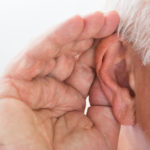Can Noise Make You Sick?
I work next to a tower of computer servers. Sometimes I could swear the “white noise” level makes me feel sick to my stomach, but I can’t find any information correlating noise levels to health issues. Could this be a legitimate health concern?
Andrew Weil, M.D. | August 26, 2008

Absolutely. It’s well known that acute loud noises can damage hearing, interfere with your sleep, raise blood pressure and stress levels and cause headaches. But constant, low-level noise can cause problems as well. A study published in the Journal of the Acoustical Society of America in March 2001 found that Austrian children who live in neighborhoods with constant low level noise (mostly from automobile and train traffic) had higher levels of the stress hormone cortisol than youngsters who lived in quieter neighborhoods. A more recent study, published in the February 2006 issue of the European Heart Journal found that heart attack risk was higher among people exposed to chronic noise.
Low-level office noise can also raise stress hormone levels. When researchers from Cornell University studied women working in offices, they found that stress levels were highest among those who were exposed to low levels of noise (conversation, typing, ringing telephones). While the women didn’t describe themselves as stressed, they made 40 percent fewer attempts to solve a difficult puzzle than women who worked in a quieter environment. Elevated stress hormones can lead eventually to high blood pressure, high cholesterol levels, heart disease, and reduced immunity.
Your experience of feeling sick to your stomach in response to the “white noise” of the computer servers in your workplace is interesting – pressure waves produced by low frequency noise can cause nausea and heart palpitations. You also might be interested to know that the word “noise” is derived from the Latin word “nausea,” meaning seasickness.
You might be able to solve your “white noise” problem with noise-canceling headphones. Or perhaps you can arrange to work in an office area where you’re not constantly exposed to the noise from the constant sounds of office machines.
Andrew Weil, M.D.









